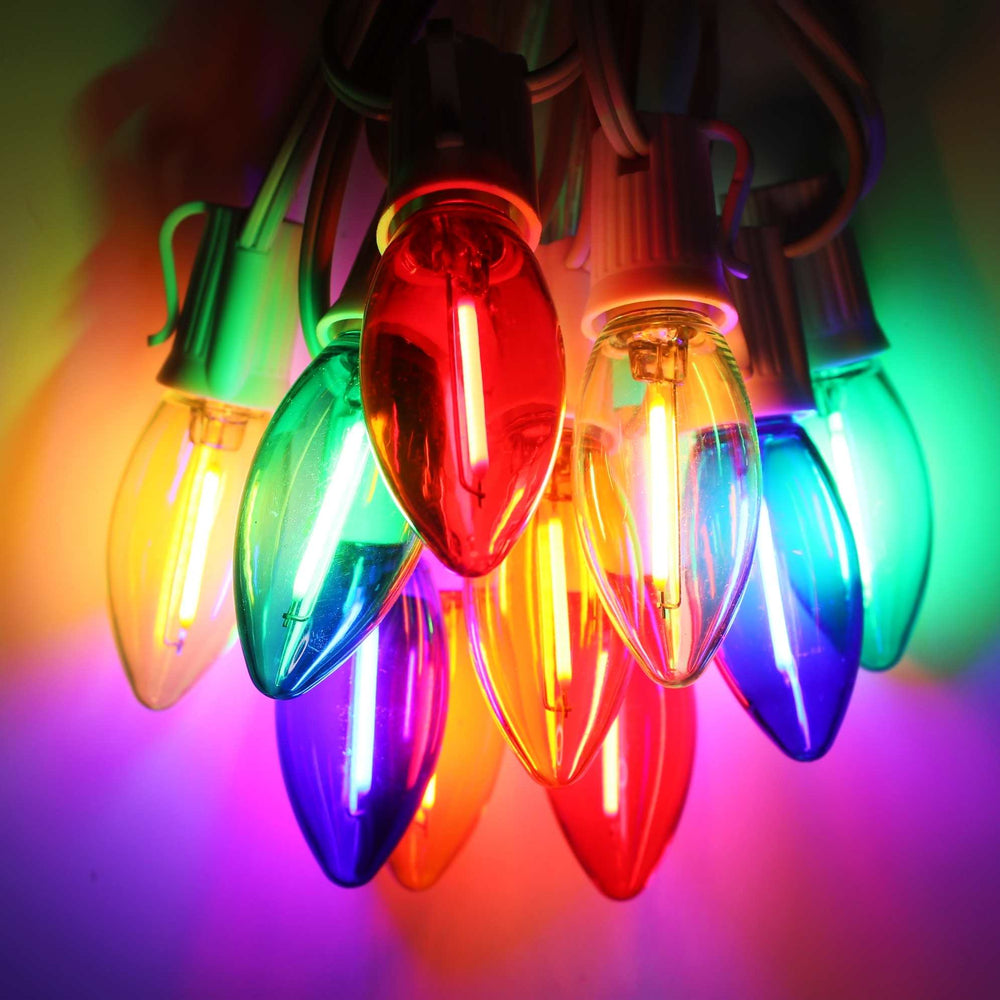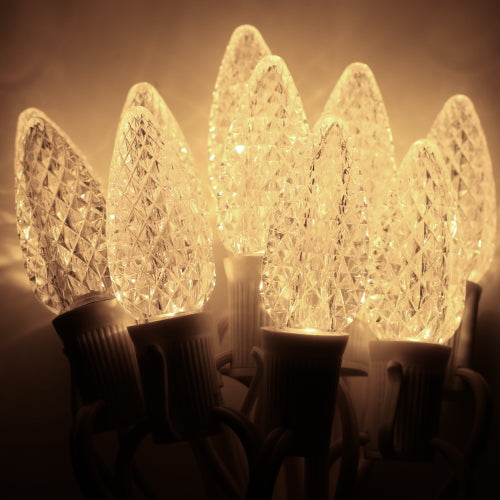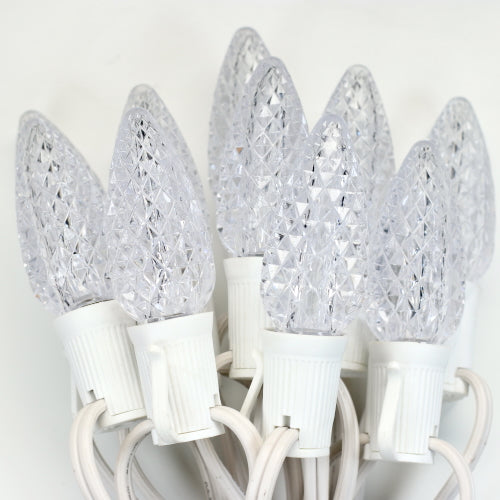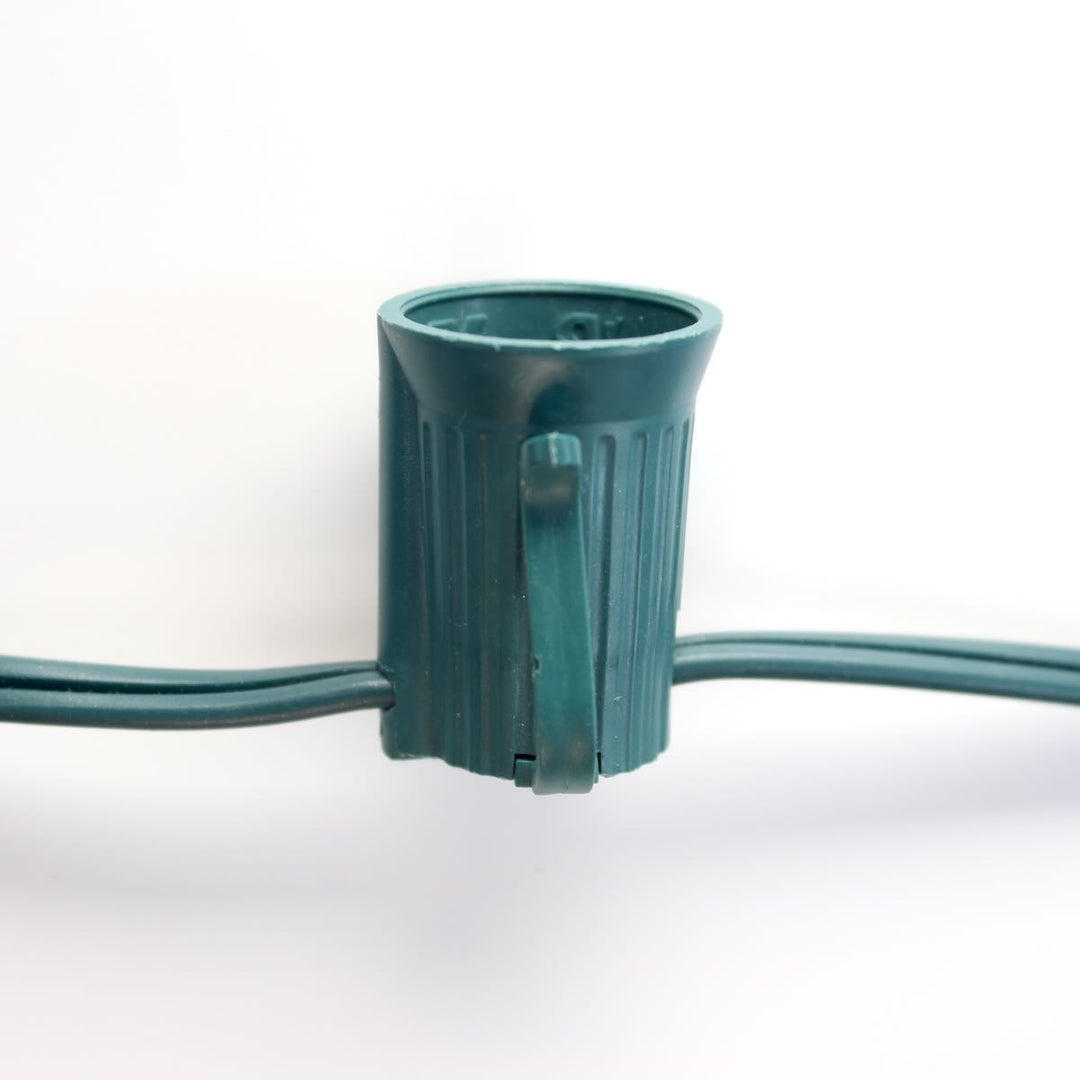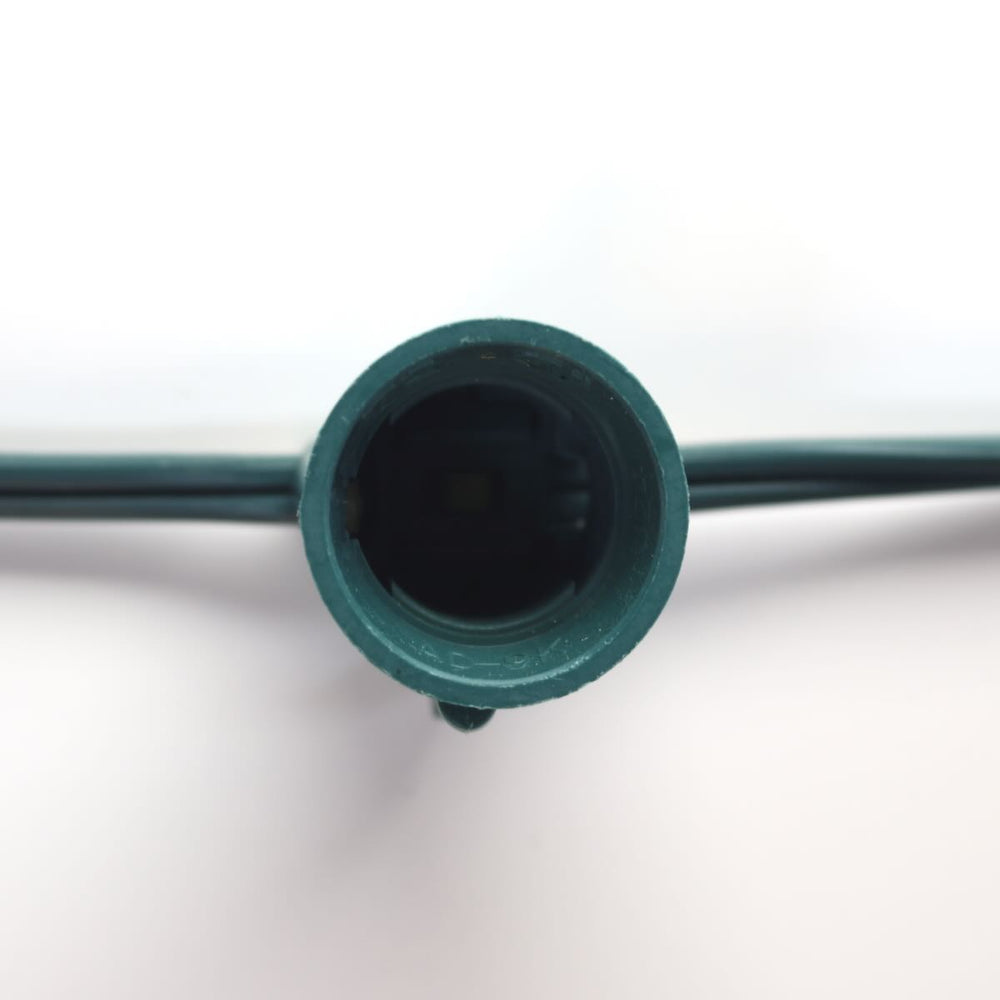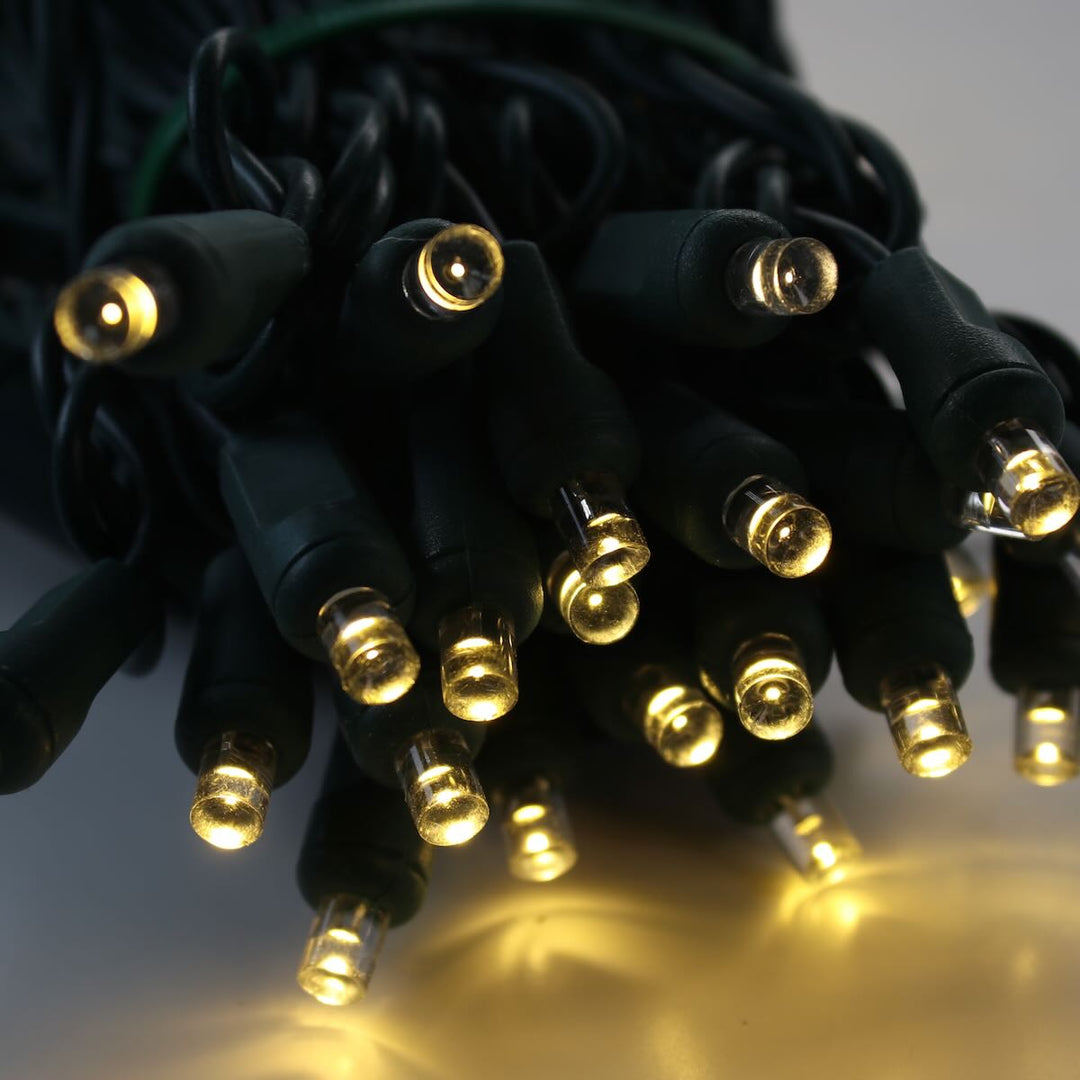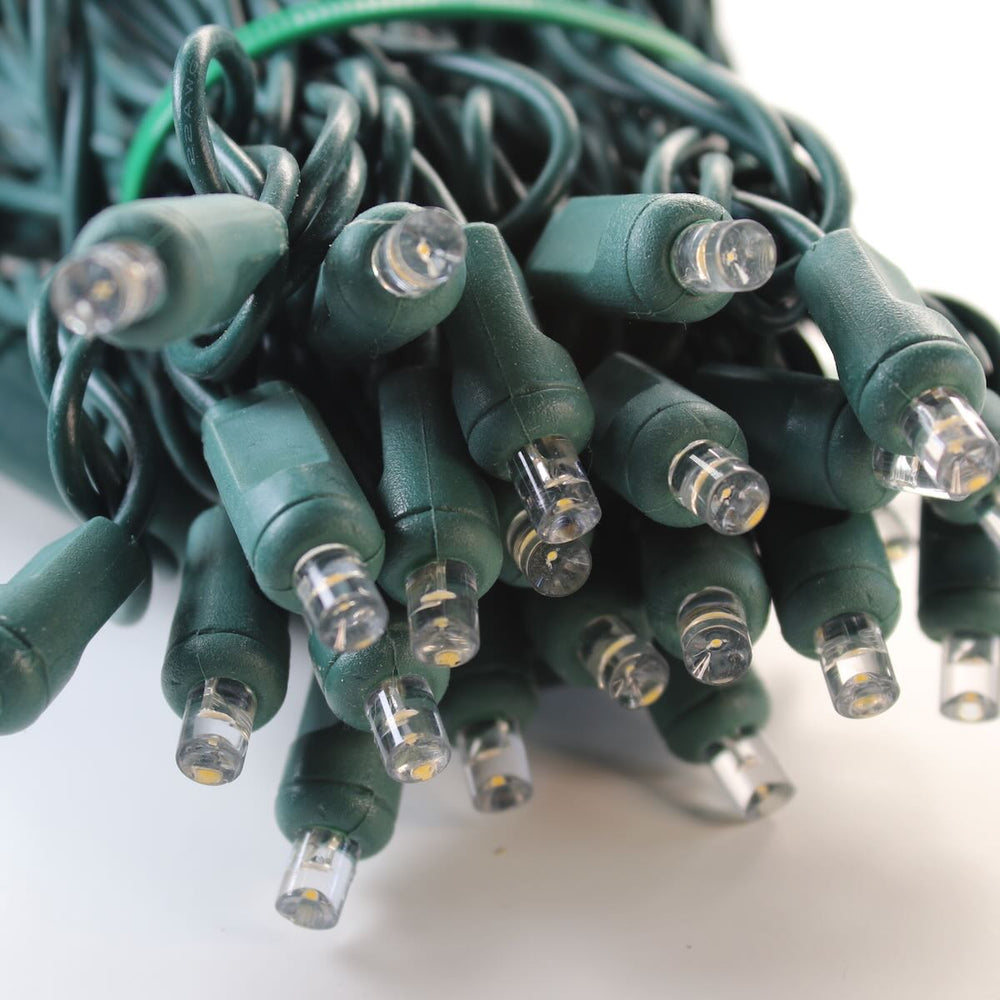Video: Help! Squirrels and Christmas Lights. They are eating my lights!
We recently heard from a customer that he had a mysterious problem. A few weeks after installing his lights outside, they started falling to the ground.
Here is the video where we filmed our response. (Watch now or scroll down for the transcript loaded below.)
Here is the transcript:
Shellie: Hi. I'm Shellie at Christmas Light Source. And we had such an interesting customer question a few weeks ago that we thought we'd share it with you.
You see, Harry had installed LED light strings inside his house and in the backyard for summer. Now, the lights inside the house were working great. But suddenly, after just a couple, three weeks, the lights outside were just falling to the ground. This was such an unusual problem that we asked him to box them up and send them back. And this is what we received. And you can see the customer was even kind enough to mark the places where the lines were very cleanly cut. It took us about five seconds to figure out the problem. Any guesses? UFOs? Toddlers with scissors?
Well, actually, Harry was the victim of furry woodland creatures. That's right. Squirrels and possums love to eat Christmas lights, and I think sometimes, they eat them right close to the...very close to the sockets because they think they're nuts or tasty treats. Well, we called the customer back, explained our theory, and he instantly knew that that was the problem. See, he had installed his lights along his fence line, which, during the day, was a superhighway for squirrels, and a runway for opossums in the evening and at night.
Now, we have the question, what do we do? Well, let's head to a hardware store or to a local feed store to get an answer.
Hi, we're at a Russell Feed & Supply at Far West, Camp Bowie out in Fort Worth, Texas. This is a great place to come for all sorts of things for lawn and garden. So we come for our chickens and you can even find bunnies. But most importantly, we're here to check out what they have for varmints, like squirrels and possums, and keeping them off your Christmas lights. Let's go on in.
So what are some of the best solutions to keep critters off your Christmas lights that you have here on the shelf?
Man: Well, we've got a few different options. If you want to go with a granule, some people like to go with a granule, we've got a...our repels all here, they actually repels multiple different types of animals, you know, such as squirrels and those types of things. And then we also have some coyote and fox urine granules, and we have it in the liquid as well. We normally sell the liquid a little bit better than we do the granules, just due to the fact that the potency is a little bit stronger.
Normally, you'll just buy like an applicator here, and you will saturate the cotton ball that's inside this applicator with either a bobcat, coyote, or fox urine, and that tends to keep them away for the most part, keeps just about everything away actually, sometimes things that you don't want to be keeping away as well. But it will keep them off your Christmas lights and kind of away from your yard.
Shellie: What a great explanation of some of the great solutions you can find to keep creatures fuzzy and not fuzzy off of your Christmas lights. So if you want more information about what to do with squirrels and possums in your Christmas lights, head over to our blog post in the link below in the comments, and be sure and subscribe to our channel.
Discourage Unwanted Guests
If you find that squirrels are eating your lights start by taking a few steps to stop attracting them to your yard:
- Don't put out dog and/or cat food where critters can sit down for a buffet after dark.
- Reduce the number of places in the yard where woodland creatures can borrow in and setup housekeeping.
- Use motion-activated light and water systems to startle night time visitors.
- Use screening systems to reduce access to fencelines and rooflines.
- Don't attract squirrels with bird feeders that are squirrel-accessible.
We saw a few remedies at the feed and tractor supply. You might consider canisters of fox or coyote urine installed along your fence line or gutters as deterrents. Check out your local store for expert assistance.
Pepper Spray
As an alternative to urine, consider the humble pepper. Powdered pepper, to be exact.
We first learned the power of hot pepper powder when we had terrible issues with feral cats using our planters as litter boxes back in our old neighborhood.
Mix hot pepper powder (not chili powder but choose a single-variety such as cayenne, ghost, habanero) with water, pour into a commercial spray bottle and spray Christmas light wiring. Sprinkle the powder along the fenceline to ward off day and night time traffic. We've also had feedback that tobacco tea - made by steeping chewing tobacco in hot water - has repelled pests as well.
Animal Control
If you find that your yard is overrun with opossums and racoons, touch base with your local animal shelter to find out what measures can be taken to relocate and reduce your pest population.
In our area, the city animal control department relocates raccoons and opossums to a nearby lake. Squirrels are a nuisance and are generally not "trappable" so discouraging their visits by making bird seed and dog/cat food unavailable is your first line of defense.
Some cities do not permit trapping or relocation of natural wildlife so be sure to check with the proper authorities.
Repairing Lights
Pre-wired LED and mini lights strings constructed with small gauge wire is hard to repair. Soldering LED light strings can change the resistance of the line enough to damage not only the LEDs on the damaged/cut string but might damage the other LED light strings connected in series with it.
The unfortunate best solution is to remove the affected string and install a replacement set.
Heavier 18 and 20 AWG C7/C9 cord can be repaired using splices available at your local hardware store combined with electrical tape and/or heat shrink. (Blog post and video showing this coming soon.)


